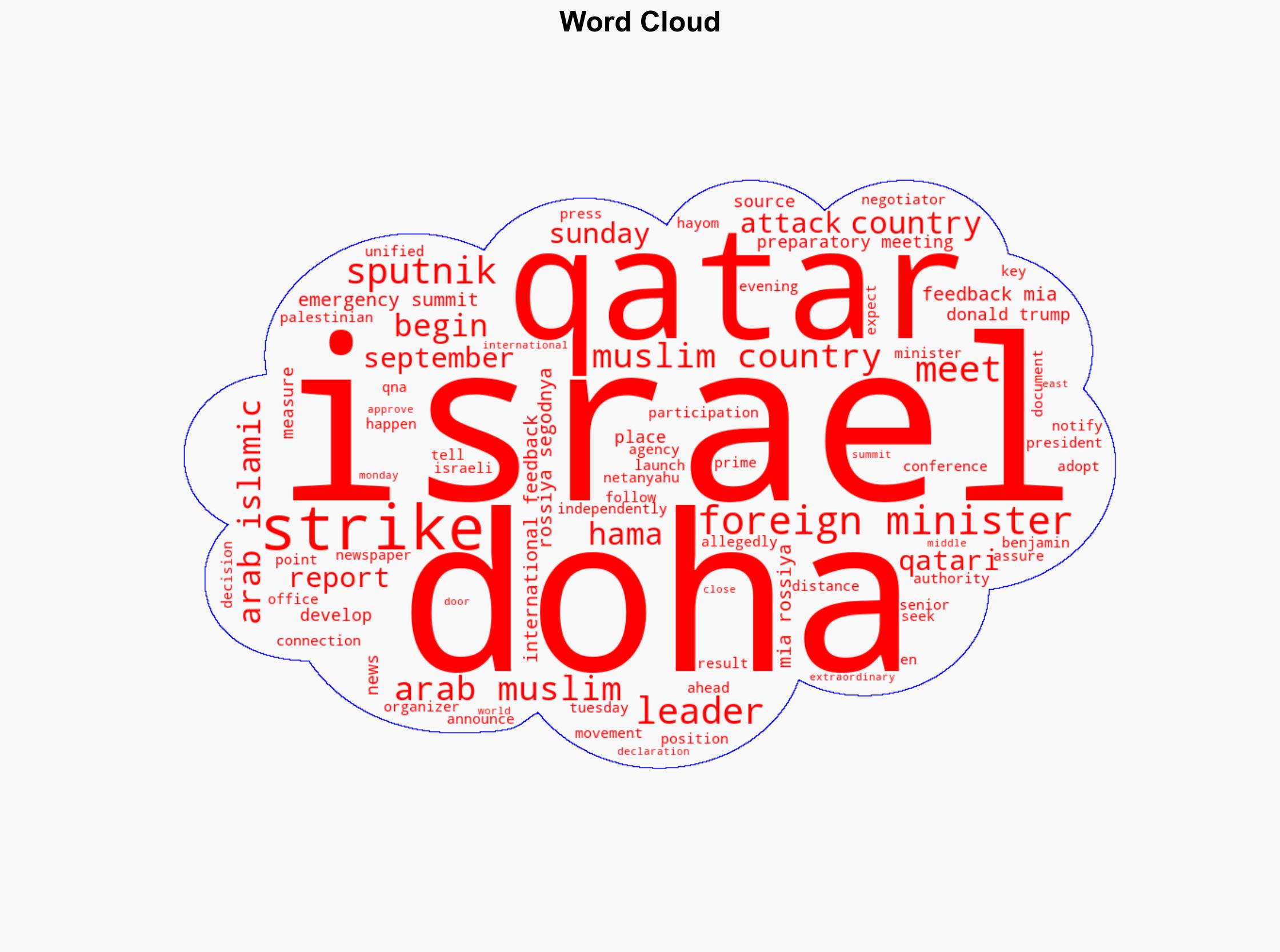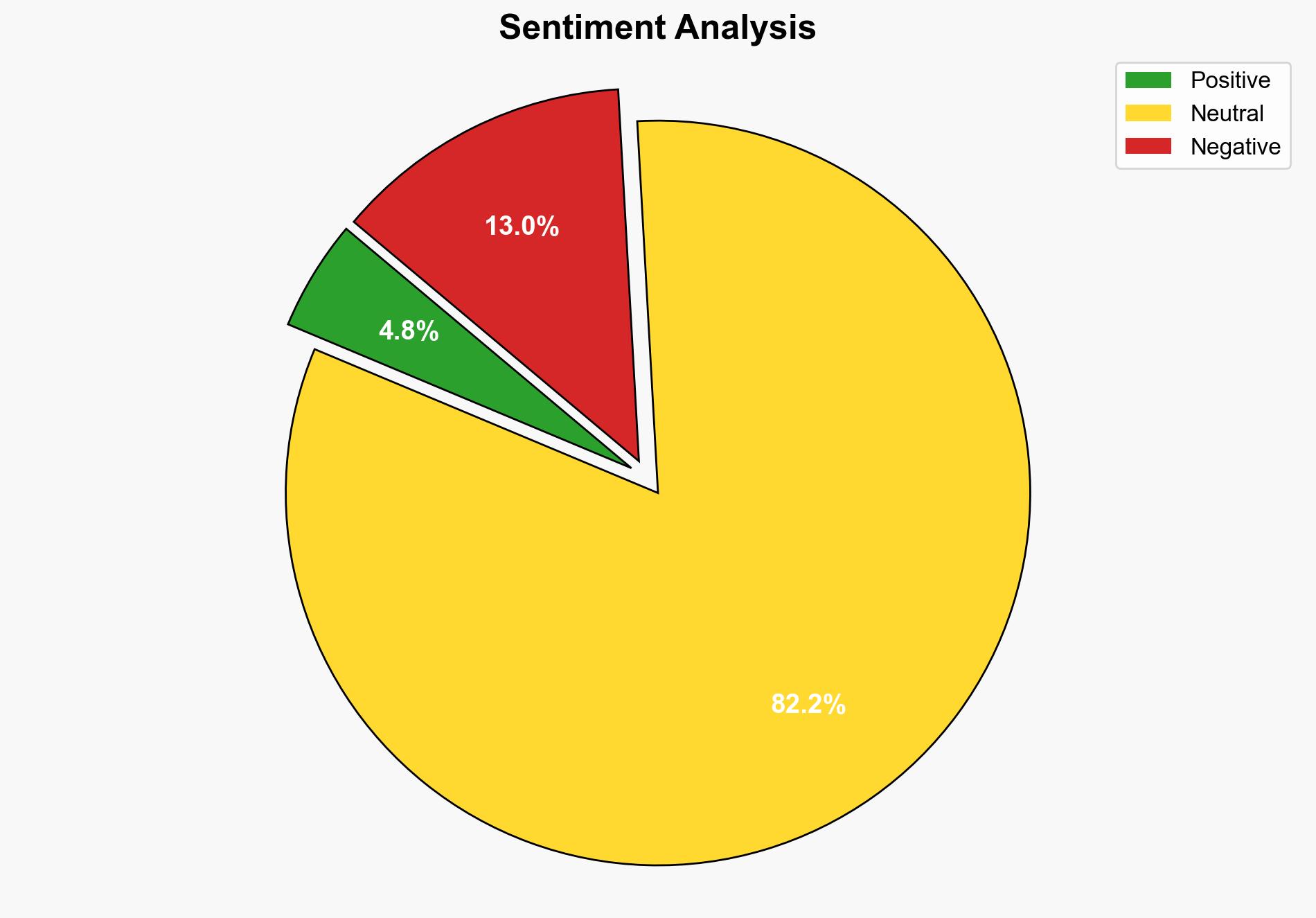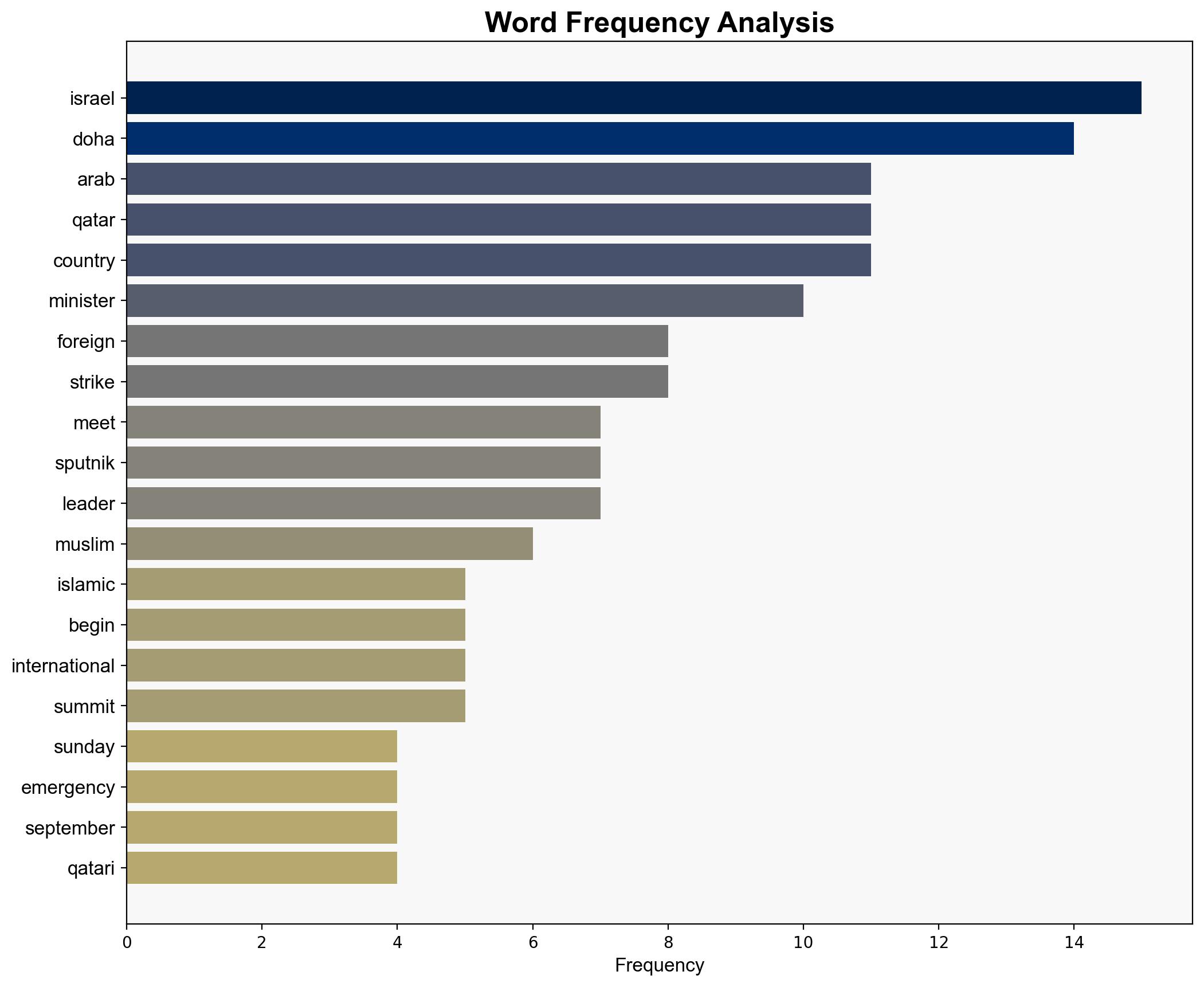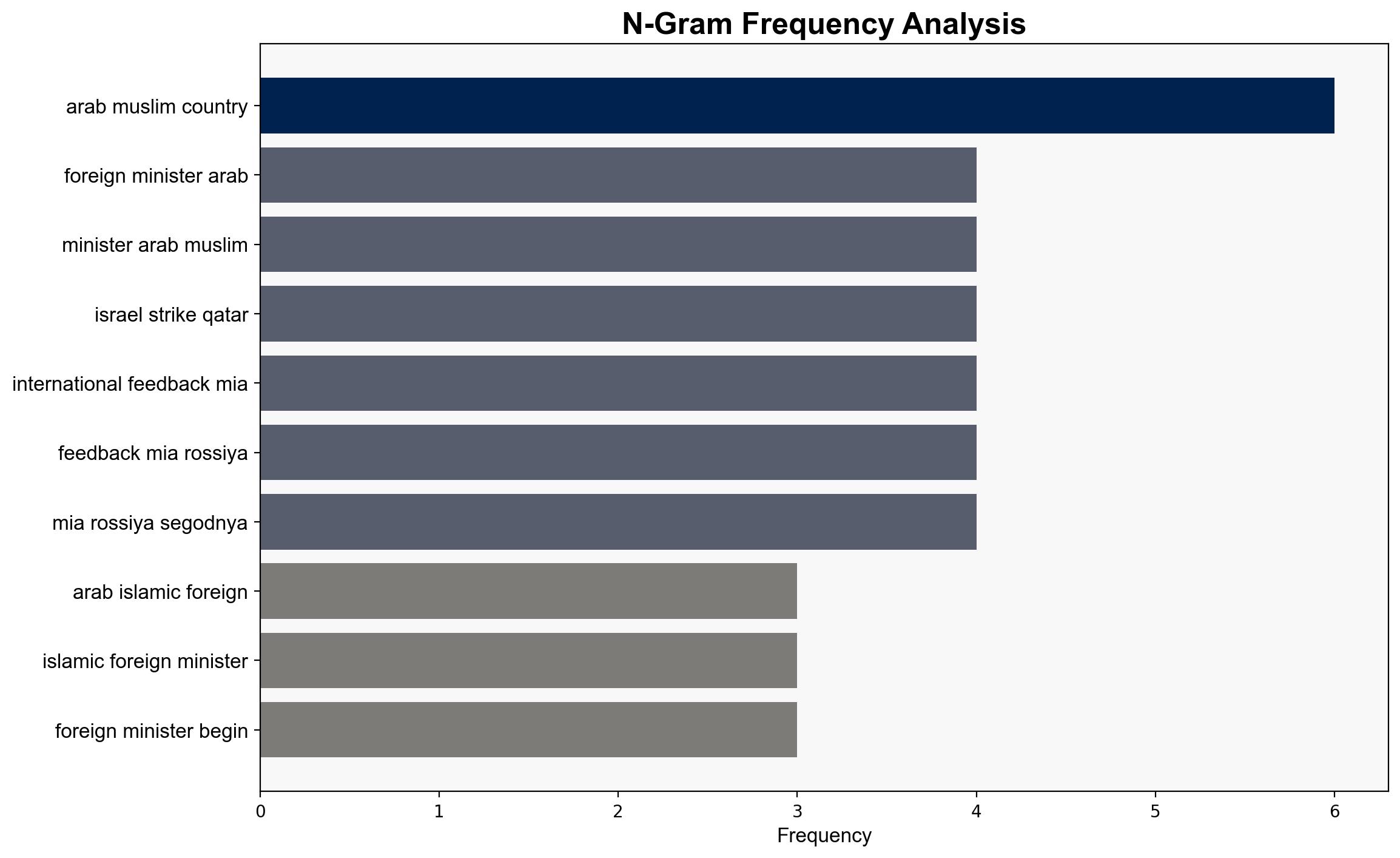Arab Islamic Foreign Ministers Begin Meeting in Qatar on Measures Against Israel – Sputnikglobe.com
Published on: 2025-09-14
Intelligence Report: Arab Islamic Foreign Ministers Begin Meeting in Qatar on Measures Against Israel – Sputnikglobe.com
1. BLUF (Bottom Line Up Front)
The most supported hypothesis is that the Arab Islamic foreign ministers are convening to formulate a unified diplomatic response to recent Israeli military actions in Qatar. Confidence level: Moderate. Recommended action: Monitor the outcomes of the meetings for shifts in regional alliances and prepare for potential diplomatic or economic countermeasures by Israel.
2. Competing Hypotheses
1. **Diplomatic Coordination Hypothesis**: The primary goal of the meeting is to develop a unified diplomatic stance against Israel’s military actions, potentially leading to collective political or economic measures.
2. **Military and Strategic Planning Hypothesis**: The meeting aims to discuss potential military or strategic responses, including support for Hamas or other groups, in reaction to Israeli actions.
Using the Analysis of Competing Hypotheses (ACH) 2.0, the Diplomatic Coordination Hypothesis is better supported due to the emphasis on developing a “unified position” and the involvement of high-level diplomatic figures. The lack of explicit military language or evidence of military planning in the source text weakens the Military and Strategic Planning Hypothesis.
3. Key Assumptions and Red Flags
– **Assumptions**: It is assumed that the meeting’s primary focus is diplomatic, given the context and participants. Another assumption is that the reported Israeli strike is the catalyst for the meeting.
– **Red Flags**: The source’s reliability (Sputnik) may introduce bias. The absence of details on specific measures being considered raises questions about the meeting’s true intent.
– **Blind Spots**: Lack of information on internal disagreements among the participating countries could obscure potential fractures in the unified stance.
4. Implications and Strategic Risks
– **Diplomatic Risks**: A unified Arab response could strain Israel’s diplomatic relations with these countries and potentially lead to broader regional isolation.
– **Economic Risks**: Economic sanctions or boycotts could be considered, impacting regional trade dynamics.
– **Geopolitical Risks**: Escalation of tensions could lead to increased military posturing or proxy conflicts, particularly if support for Hamas is bolstered.
– **Psychological Risks**: Heightened tensions could exacerbate public sentiment and unrest within the region, influencing domestic politics.
5. Recommendations and Outlook
- Monitor the outcomes of the Doha meetings closely for any formal declarations or policy shifts.
- Engage in diplomatic outreach to key Arab states to understand their positions and mitigate potential escalations.
- Prepare for scenario-based responses:
- **Best Case**: The meeting results in a call for dialogue and de-escalation.
- **Worst Case**: Coordinated economic sanctions or military support for Hamas are announced.
- **Most Likely**: A diplomatic condemnation with limited immediate action.
6. Key Individuals and Entities
– Benjamin Netanyahu
– Donald Trump
– Hamas
– Israeli and Qatari authorities
7. Thematic Tags
national security threats, cybersecurity, counter-terrorism, regional focus





